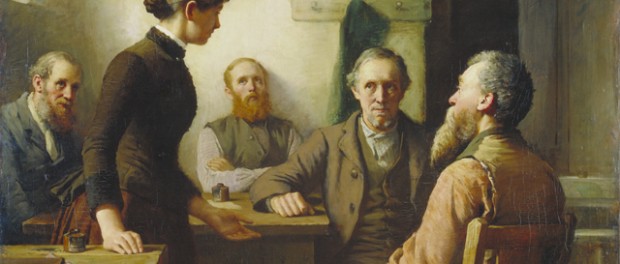Too hot to handle?
Dealing with protests on sex education

I’ll admit that it is high time we included an article on sex education in Education Forum. I knew I wanted Susan Ursel to write the piece because of her long and acclaimed equity work on issues of gender and sex. Originally I wanted to publish a piece that would outline what a progressive sex education curriculum would include, and I hoped that it would precede the unveiling of the provincial government’s new health and physical education curriculum, and possibly influence it. Alas, with the timing of Susan’s schedule and the thematic demands of this magazine, this was the earliest we could collaborate on something.
In retrospect, the timing proved very good. Not only did Susan and her colleague Karen Ensslen have the opportunity to read and comment on the new curriculum, but by chance they were able to put it into historical context using the newly published book, Too Hot to Handle: A Global History of Sex Education by Jonathan Zimmerman.
I won’t give away their conclusion, but suffice to say they recognize that a progressive curriculum is healthy for students.
But as interesting as I find the article, it is the pockets of protest against the new sex education curriculum that really fascinate me. I am a big believer in the right to protest and when groups of parents gathered to voice their dissent against the new curriculum, I listened carefully. Some of the statements made on camera that struck me most deeply included:
“They want to poison their minds.”
“What’s next? Safe sex with animals?”
“Why bother learning [sic] them anything about something they don’t even know about?”
“Why does my kid need to know the name for boobies?”
I don’t want to dwell too long on such statements, because without hearing the passion and anxiety behind them, I fear I could be accused of mocking those who made them. But the last statement really affected me. A grown man who was unable (or too uncomfortable) to use the word “breast” publicly was protesting against a sex education curriculum that was, in his opinion, too informative. Don’t dismiss such a thing as simple irony; it is clear evidence of the need for a new, updated and progressive sex education curriculum.
But the biggest issue revealed here is not about updating curriculum, but how members of the public see our schools as something on which they are obligated to project their needs, feelings and opinions. As education workers, we know our schools from the inside out, and it can be disturbing to see those on the outside looking in and foisting their own personal beliefs on us.
I am reminded of Robert Harris’s 1885 painting “A Meeting of the School Trustees,” which hangs in the National Gallery of Canada in Ottawa. You may remember the Canadian Heritage Minute based on it. In the painting, a young female school teacher stands and is surrounded by four seated, older men, presumably school trustees. Her hand is turned upward, reaching out as if imploring for understanding while the men stare at her, one with his arms crossed, looking stubborn, resolute and unswayed.
For those of us who have worked in schools and have worked with children, how many times have we felt like the teacher in the painting? We know our students, we know what they need, and yet we must contend with well-intentioned, but sometimes ill-informed, demands of parents and other members of the public.
We should all be proud to work in schools that people feel are so important that they are compelled to offer specific input on how those schools are run. This is natural in a democracy with publicly funded institutions and especially understandable when it comes to the education of the young. However, we must always be wary that the moral projections of the public do not override the expertise and experience of those who work in education. As society changes, so do the needs of our students, and it is our duty to advocate for progressive change in our schools.

Leave a comment